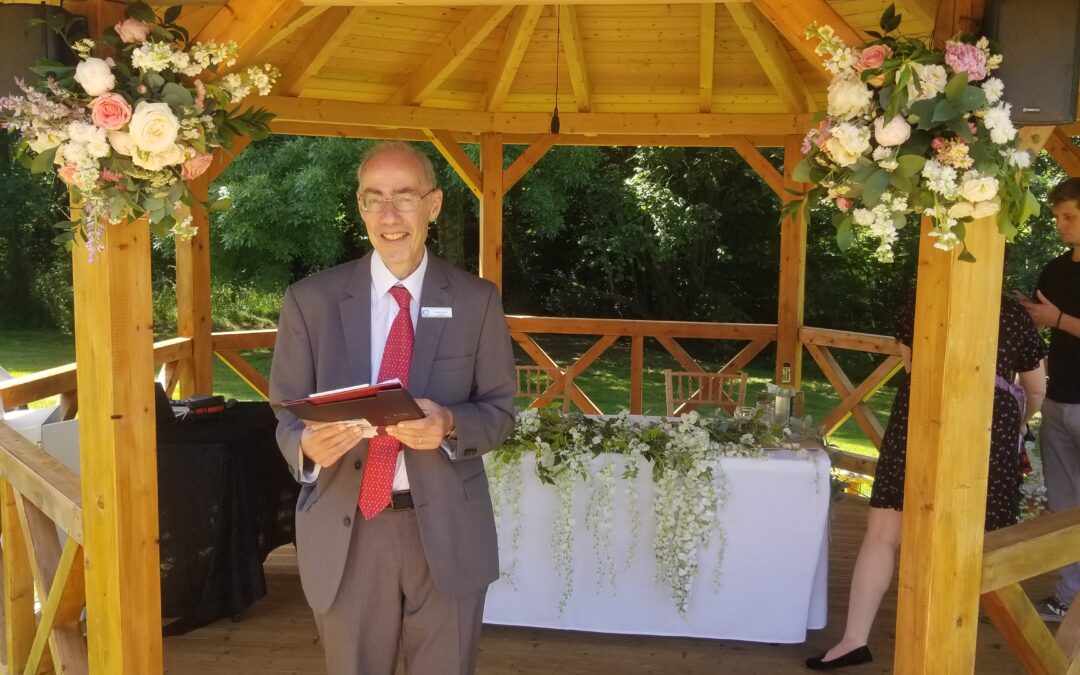
by Michael | Jul 8, 2024 | Blog
Unless you’re lucky and have personal knowledge of a celebrant, or you’ve seen them in action, you may well be in the dark about celebrants.
Clearly, they should have a website and this should give you an idea of what they look like and, possibly, sound like. You may be able to get an idea of their personality, so that’s not a bad place to start.
You may benefit from reading reviews – you may get a sense of whether they will understand your vision and facilitate it.
You may be able to learn their USP(s). Not everybody will be bothered that I can present in numerous languages, but it has proved important to quite a few clients over the years.
One very important asset to any celebrant is trustworthiness. One of the best ways of assessing this is to have a face-to-face meeting with them. You can ask the questions that concern you and sense how much (or little!) empathy you feel for them. It’s important to get this right, as you are going to want to feel happy that the person you have chosen to share the spotlight with you can be relied upon.
You’re probably going to want an experienced celebrant (for obvious reasons!). You normally have to pay for this. It’s worth bearing in mind that a celebrant has usually paid for a lot of training and boasts skills that are unique, especially in combination with each other. They are probably trade association members and have insurance.
Ts and Cs can be boring, but you should not ignore them. You need to know what you are paying for – and what is not covered. This includes cancellation policies. Don’t be afraid to ask for elucidation, if you don’t understand something you’ll be signing.
The right celebrant will make such a difference to your ceremony, so it’s important to do the due diligence. If you get it right, you definitely won’t regret it!
Please have a chat, if you want to continue discussing this theme.
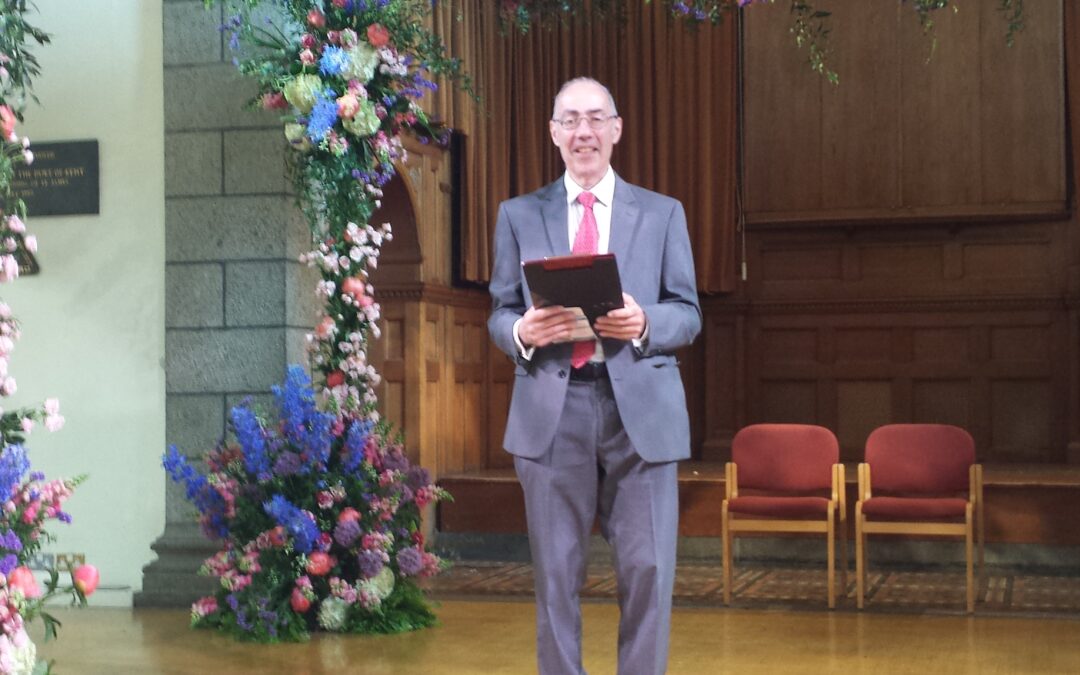
by Michael | Jul 1, 2024 | Blog
Saving money on a wedding is an attractive thought, but how realisable is it?
A wedding is (hopefully!) a once-in-a-lifetime event. You’re not going to skimp on things, if you can help it. You want everything to turn out perfectly. Quality matters.
So it’s reasonable enough that you have to pay for it.
There are certain areas you probably won’t be prepared to compromise about. These could include the rings, the wedding dress and make-up artist.
But it’s all very subjective. What is essential to one couple may hardly register in the list of priorities of another.
Therefore, my comments may not fit all of you in every way. Hopefully, they will still prove useful to most of you and offer some food for thought and practical suggestions.
Venue
One expensive area is the venue. It’s important that you both feel excited by the venue, so should not skimp. But do make sure you know what exactly you are paying for.
Be aware that you may be able to bargain a bit, if you choose to marry out of season or, possibly, earlier in the day.
Catering
This very much depends on the scale that you are aiming at. Silver service is convenient, but expensive. You may be able to save a bit by offering a self-service buffet. That can also help you deal with dietary issues among guests.
You will probably provide a bottle or two of wine (and water), but you may think about introducing a cash bar.
Wedding Planner
A wedding planner can be considered a major expense, but what price do you put on peace of mind? Some wedding planners can be hired for the day (or week), which may be an option for some. A good Wedding Planner is invaluable, especially for a larger affair – but not necessarily a necessity.
Officiant
Again, opinions may be divided here, but you should consider a Civil Celebrant (such as myself!). A Civil Celebrant gives you the freedom to choose exactly how you mark the ceremony. They offer the chance to stamp your own personality on the service as well as providing the elements that you really want to include.
Entertainment
There’s virtually no limit to the kind of entertainment you can offer. Your outlay will depend on your budget, as well as personal preferences. You may have to consider how to occupy children, what may be suitable for older guests and the logistics of dancing or photobooths and the like.
Music can come under this category. Live music can be preferable to a DJ, but probably comes dearer. A DJ can also serve as a toastmaster, at a pinch. Up to you, of course.
Florists
Flowers can be surprisingly expensive. You can save a little by opting for local, in-season flowers.
Photographers/AV Recorders
Photographs are surely obligatory at a wedding. The photographer’s professional skills are essential. They have to spend a long time with you too, so deserve to be suitably paid. It’s not really a job that can be handed out to a friend, although a lot of money could be saved that way!
So, there are a few ways to save money at a wedding, but you have to make quite sure that you are not sacrificing quality.
Feel free to have a chat further about this.
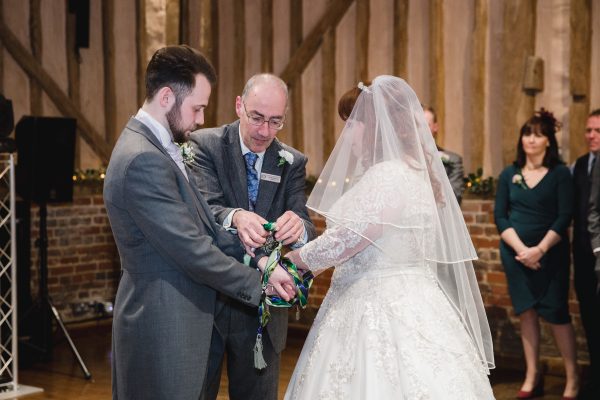
by Michael | Jun 25, 2024 | Blog
One of the beauties of celebrant-led ceremonies is that you can include whatever you want. Well, virtually.
You are not obliged to follow standard ritual or liturgy. You can mark your occasion anywhere and in, more or less, any way you choose.
So that can mean that your ceremony may appear quite wacky.
Not just because you may not be including any religious elements. Or even that your service is totally secular.
Things may be more extreme. You might include pagan rituals , such as handfasting or nature blessings, for example. You may choose to celebrate your event on the beach or in an aquarium, say.
The point is that the world is very much your oyster.
Those people who have heard of civil celebrants usually associate them with way-out ceremonies, which isn’t necessarily the case.
My own preferences lead me to specialise in ceremonies that are individual and unique, but not all that wacky. Although I’ve done a few way-out services too.
I’d define the majority of my ceremonies as semi-conventional. (People are often unaware that a celebrant-led service doesn’t have to be woo-woo.)
In fact, I can probably claim to be a bit of a specialist in mixed-faith ceremonies. Judaeo-Christian weddings seem to be my most popular services.
I normally draft elements of the respective religions (liturgy or culture) together, trying not to let one religion dominate, unless that is what all parties wish). The idea is that it should be seamless, but meaningful. If necessary, I will include explanations of what is going on, so guests don’t feel left out.
The important thing is that I am always in communication with the client and able to understand and meet their needs and desires. That way, I can build with them the service of their dreams, which can be meaningful and spiritual without necessarily being woo-woo.
Let’s have a chat and see how your ceremony can be made really special.
photo: Louiedonovanphotography.co.uk
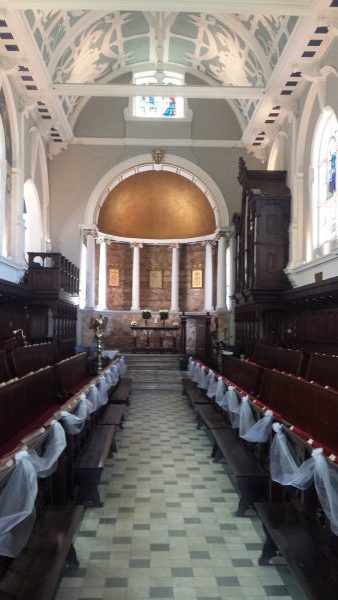
by Michael | Jun 18, 2024 | Blog
The religious wedding is undeniably in decline, but still has a place for many. Sometimes, it is the couple’s choice; on occasion, outside influences (such as family pressure) may dictate the decision.
Whatever the reason, marriage in places of worship accounts for fewer than 20% of all ceremonies conducted in England & Wales. (Incidentally, same-sex marriage accounted for less than 1% of these ceremonies.)
More couples are choosing to live together, rather than marry. This doesn’t fully explain the significant drop in those opting for the fully religious marriage. Church-going in general is definitely declining, though.
One reason for the fall in popularity of religious services is rigidity. There is little room for flexibility or variance. The standard service has to be followed. The liturgy rules. It is not personal to the couple.
(That’s not a criticism – this suits many people, after all, and the service can still be very beautiful.)
It is, of course, possible to find a compromise. If you use a civil celebrant, then you may be able to mix the religious and the spiritual, and come out with a unique and meaningful ceremony.
The celebrant-led service may well be an option for precisely the reasons already stated, but may also work for those whom the Church refuses to marry. (Catholic divorcees or those wanting mixed marriages, for example.)
One other potential advantage of having a celebrant-led ceremony is that you have choice of venue. Lovely as a church is, it may not offer the desired atmosphere or location. Why not choose wherever you want to marry as your venue?
Ultimately, it’s a matter of personal conviction as well as choice, but you really can have what you actually want for your big day.
I would be happy to have a chat with you, if this has set you thinking!
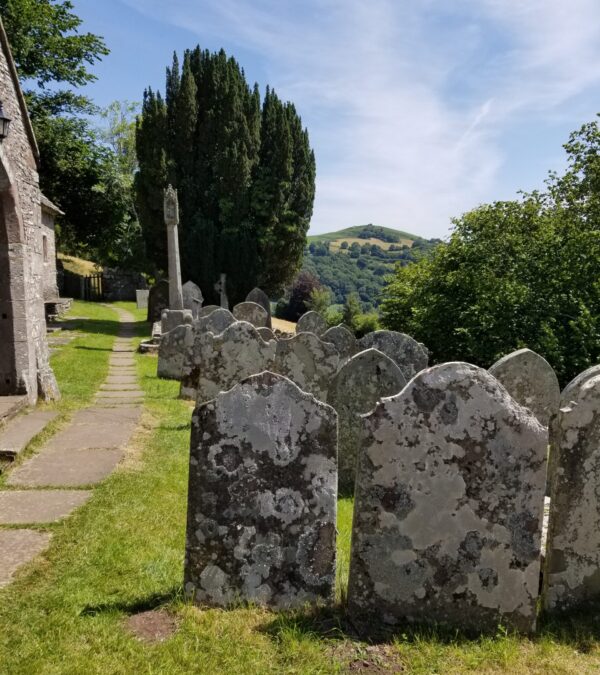
by Michael | Jun 10, 2024 | Blog
Being a civil celebrant has its challenges. I never know quite what to expect when I contact my next client.
It may be relatively simple. The client is looking to mark a major event in a joyous way. Or fairly solemnly. Or even a mixture …
The point is that the client has expectations and, whatever they may be, I need to be aware of this and act upon them.
So my discovery conversation is based upon me asking the right questions to establish the client’s vision.
That can apply to a funeral just as much as to a joyful event.
Either way, we need to work out the tone of the ceremony and which (if any) religious elements we include. Then we can agree on the content.
There are surprisingly few differences in the way a funeral and a celebratory event are prepared. The process is similar, although the eventual tone (and content) may not be.
One likely difference is the atmosphere that surrounds our discovery call For a celebration, people are usually good-humoured and amenable. For a funeral, the client could be in any stage of grieving (denial, anger, bewilderment, guilt, etc.). I recall visiting one family of four, all of whom were cracking jokes. On the day of the funeral, they were crying their hearts out. Laughter had been their way of coping.
I hinted earlier at more challenging instances. Well, there have been quite a few of these.
Bad blood has featured.
On a couple of occasions, my client was expecting violence at the ceremony. (In one case, the expected aggressor didn’t show up in the other, I managed to persuade them to hold their peace). Scary moments, though …
One funeral looked as if it would never happen. The father had been abusive to his daughter and widow. The daughter wanted nothing to do with him or his funeral. Strangely, she still invited me over to discuss the service.
I listened to her sympathetically and told her we would do whatever she decided. However, I made the point that, without closure, she might have regrets further down the line. There could be no turning back then.
I left her to think about it.
She decided to proceed.
A (limited) funeral took place and the lady was even able to cry at the service. She was very grateful to me afterwards.
Of course, the vast majority of my several hundred ceremonies have gone peacefully and to plan. But you just never know …
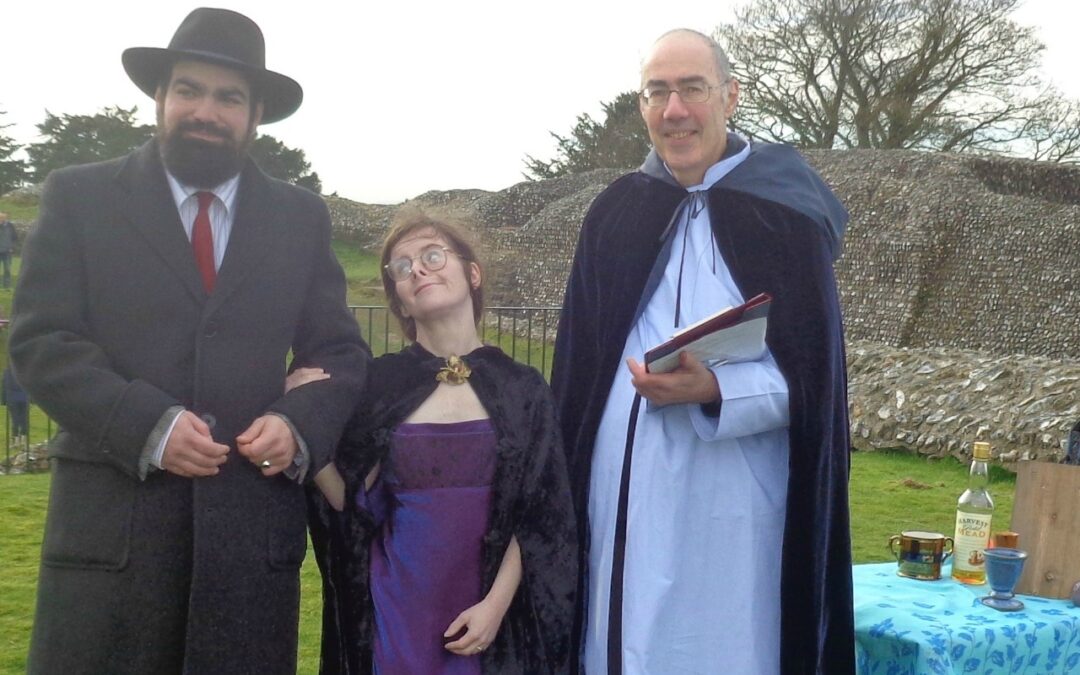
by Michael | Jun 3, 2024 | Blog
Of course I’m not alone in failing to find my vocation at first.
I started my working life (apart from student jobs) in a merchanting company. I was singularly unsuited for this, in truth, and lasted about 18 months.
I then became a teacher. While I was at university, the only career direction I had been sure of was that I would not become a teacher!
Well, 25 years down the line, I had proved myself wrong!
However, I didn’t really enjoy perhaps a quarter of the time I spent as a teacher, so it wasn’t truly what I was cut out for.
My mother, who had had hopes for me in business, was disappointed in my choice (I am sure), but, as I made my way up the ladder, became happier.
When she died in 2009, I was independently free for about a year – so I left the profession.
I went in to multi-level marketing, offering natural health products. This was really good for the self-development it encouraged, and I enjoyed selling remarkable products and making a difference. Unfortunately, I did not make money doing it.
This went on for a couple of years and something had to give.
One day, when I attended a business networking meeting, I met my first Civil Celebrant. Out of politeness, I made conversation with him. He was to infect me with his passion for celebrancy. Why on earth shouldn’t somebody be able to mark an important life-cycle occasion in the way that they wanted and in a way which meant something to them?
So I was hooked.
Two training weekends later in 2013, and I was ready to be unleashed on the world!
My focus has organically moved to funerals, but I still offer weddings (especially mixed-faith) and Vow Renewals, among other ceremonies. I love meeting the clients and helping them on their journey. I can help and advise them, and also facilitate their dreams.
It’s a thoroughly rewarding (though not necessarily that well-paid!) profession, and I’m so glad I stumbled upon it. Even if it took me till I was in my 50s to become part of it!






